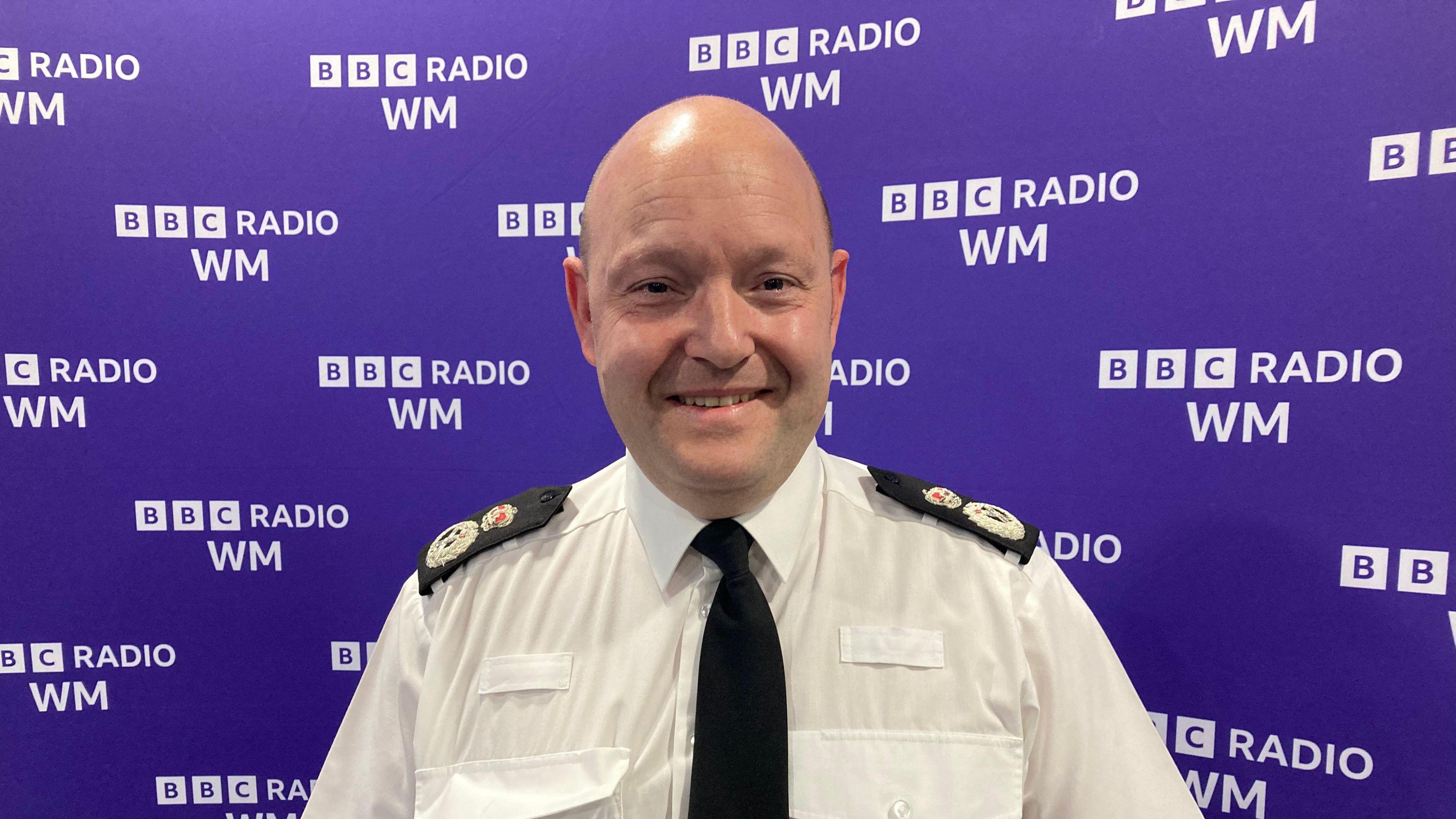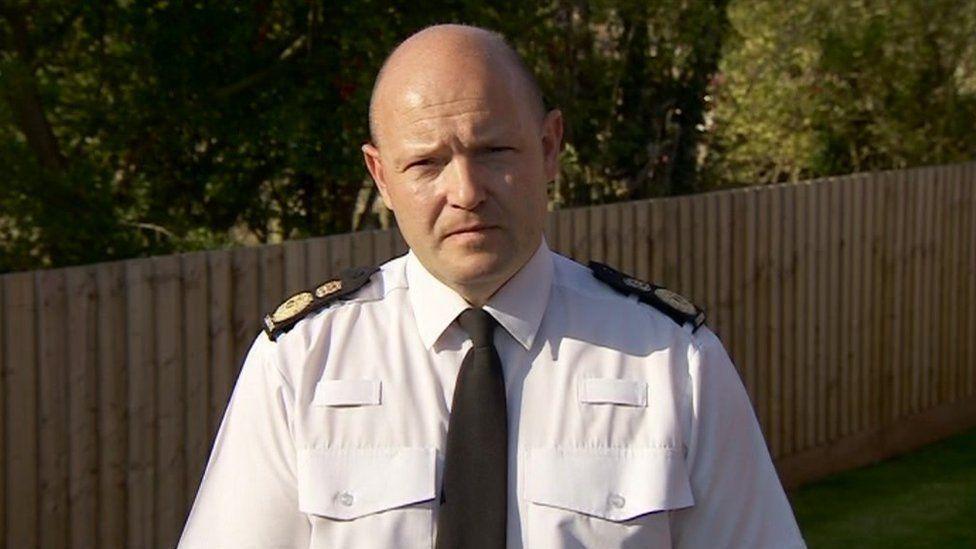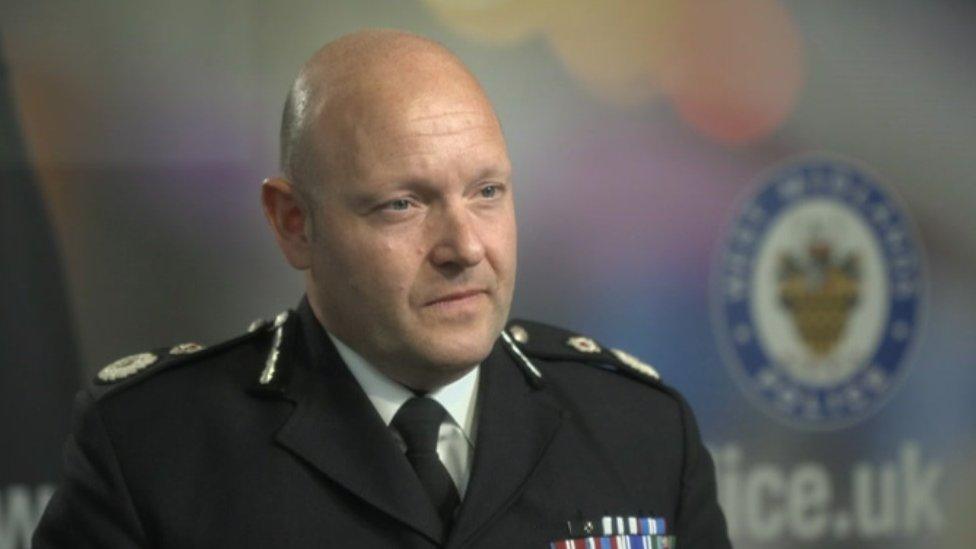Tackling vehicle crime is a priority - police boss

Craig Guildford appeared on BBC Radio WM to discuss issues affecting listeners
- Published
Tackling vehicle crime is a top priority for West Midlands Police, its chief constable has said.
Chief Constable Craig Guildford said the number of arrests had risen and reports of vehicle crime had fallen across the West Midlands.
Appearing on BBC Radio WM, Mr Guildford answered the concerns of listeners on a range of issues including knife crime, policing standards and the number of officers on the beat.
Faizah Azeem, 32, from Moseley, spoke to Mr Guildford about her “terrifying” ordeal of having her Toyota Aygo stripped twice while parked outside her home in Moseley.
“I heard it happening, I was lying in bed with my nine-month-old baby trying to stay as quiet as possible because I didn’t want to wake my partner up in case he would go out and confront them as I could hear that they were violent," she said.

Faizah Azeem said she was left terrified by the ordeal and felt let down by the lack of police response
“It has had such a traumatic impact on me. I rang 999, I was terrified and was crying on the phone and they didn’t send anyone.”
Responding to her account, Mr Guildford told listeners: “Vehicle crime is a priority, it is down by 12% across the West Midlands which is good news.
“In March we had the highest ever number of arrests that we have had in five years. It is a local priority.”
He urged victims to call 999 if they saw their car being targeted.
Listen on BBC Sounds: Chief Constable Craig Guildford discusses car crime issues
Mr Guildford added: “The stripping aspect of it has resulted in us doing [numerous] warrants at chop shops because we are aware of the problem.
“You will see in the media the efforts that we are going to, to dismantle these criminal enterprises who are trading in the parts and then swapping the parts and using them on other vehicles.”
As part of the crackdown on vehicle crime, the force has continued its investment in ANPR technology and brought in additional road crime resources.
The chief constable, who took on the role in 2022, told listeners that there were currently 8,100 officers on the beat, 800 fewer than there were in 2010.
Tackling knife crime
When asked about knife crime, Mr Guildford said: “We need to look at early intervention, in particular the primary age.
“It’s not just one of those problems you can arrest your way out of, this is a societal issue, this is a health issue.
“We need to take an approach that does not tolerate the carrying of knives by young people. We need to focus much more on the reasons why young people think it’s cool to carry or think it's safer to carry and we need to focus more on the consequences of what can happen to young people if they do carry.”
The rate of knife crime in England rose slightly between 2022 and 2023, from 84 to 89 offences per 100,000 people, according to police figures.
In 2023, the West Midlands recorded the highest knife crime rate in England, with 180 offences per 100,000 people.
“As a statistic it doesn’t make pleasant reading, it is my personal and professional responsibility to absolutely bear down on knife crime,” Mr Guildford added.
Follow BBC West Midlands on Facebook, external, X,, external and Instagram, external, Send your story ideas to: newsonline.westmidlands@bbc.co.uk, external
- Published16 April 2024

- Published25 April 2024
- Published26 July 2022

- Published4 April 2023
